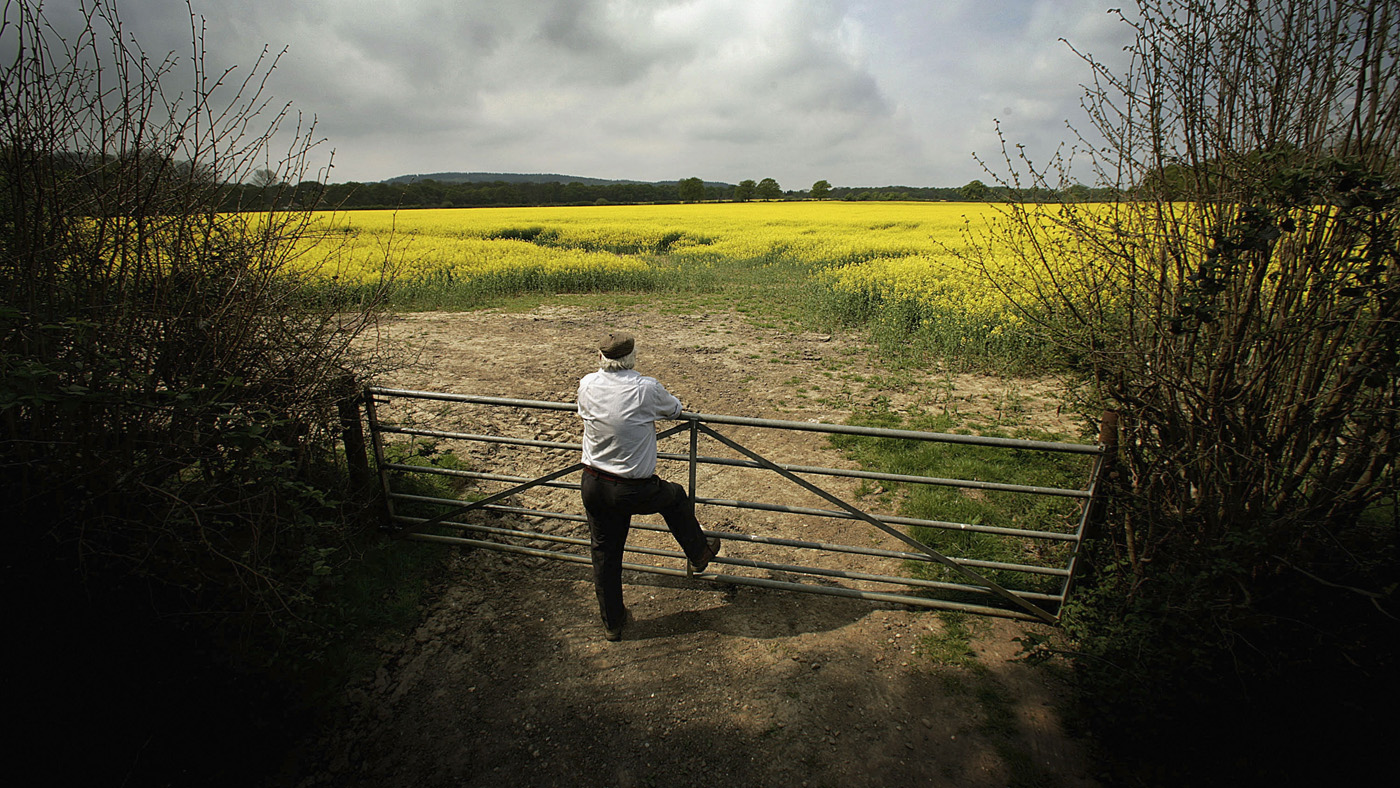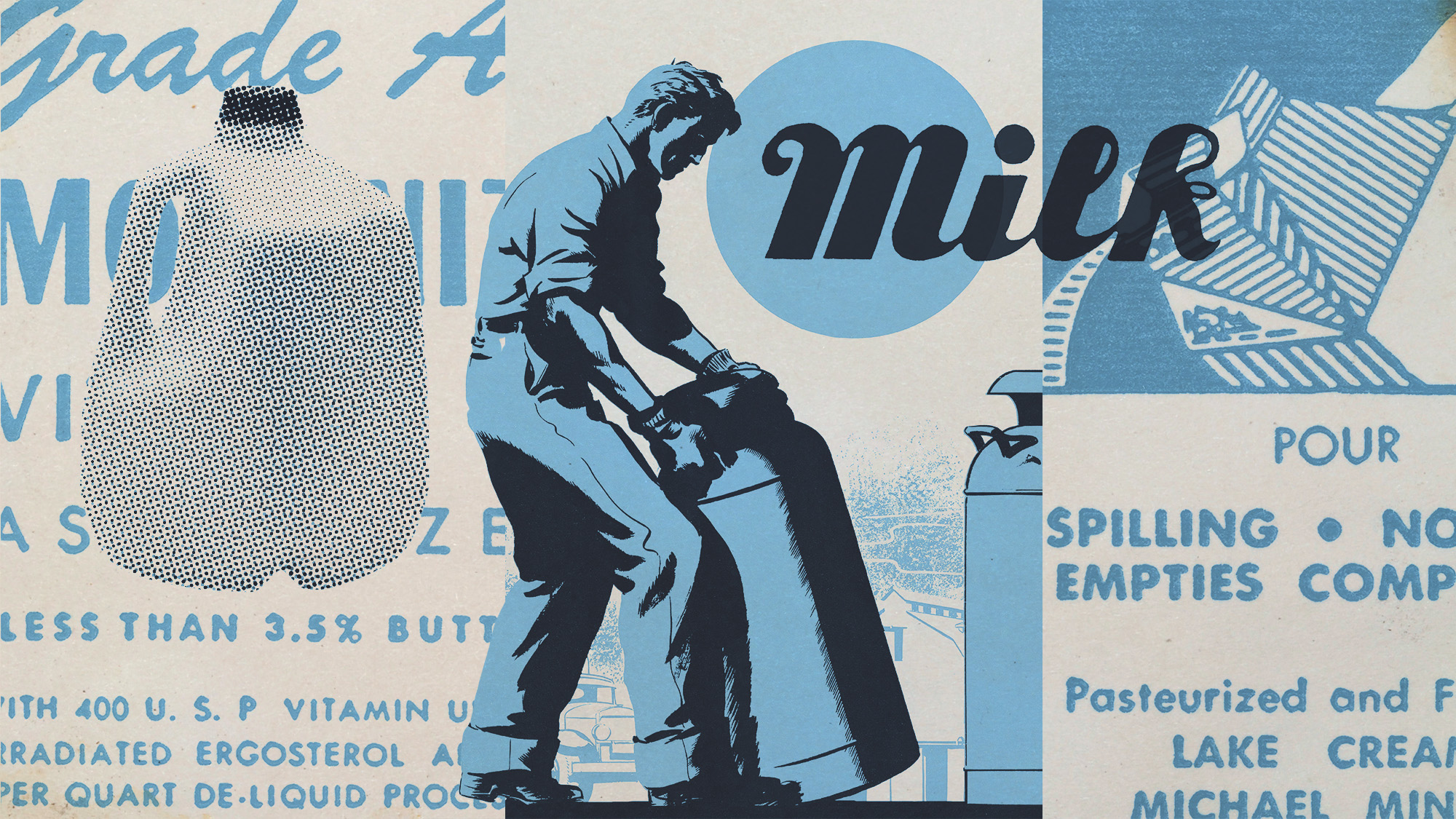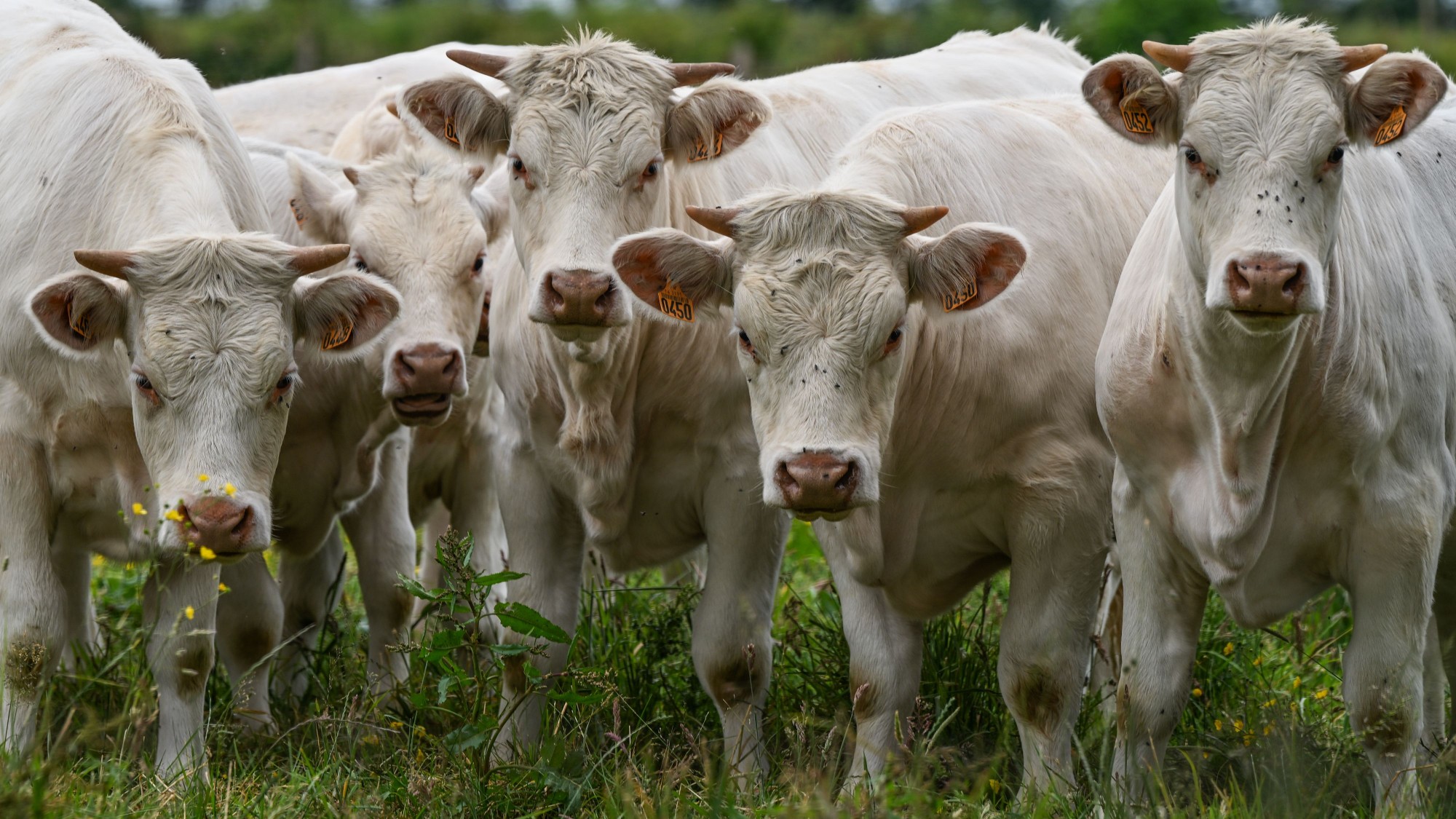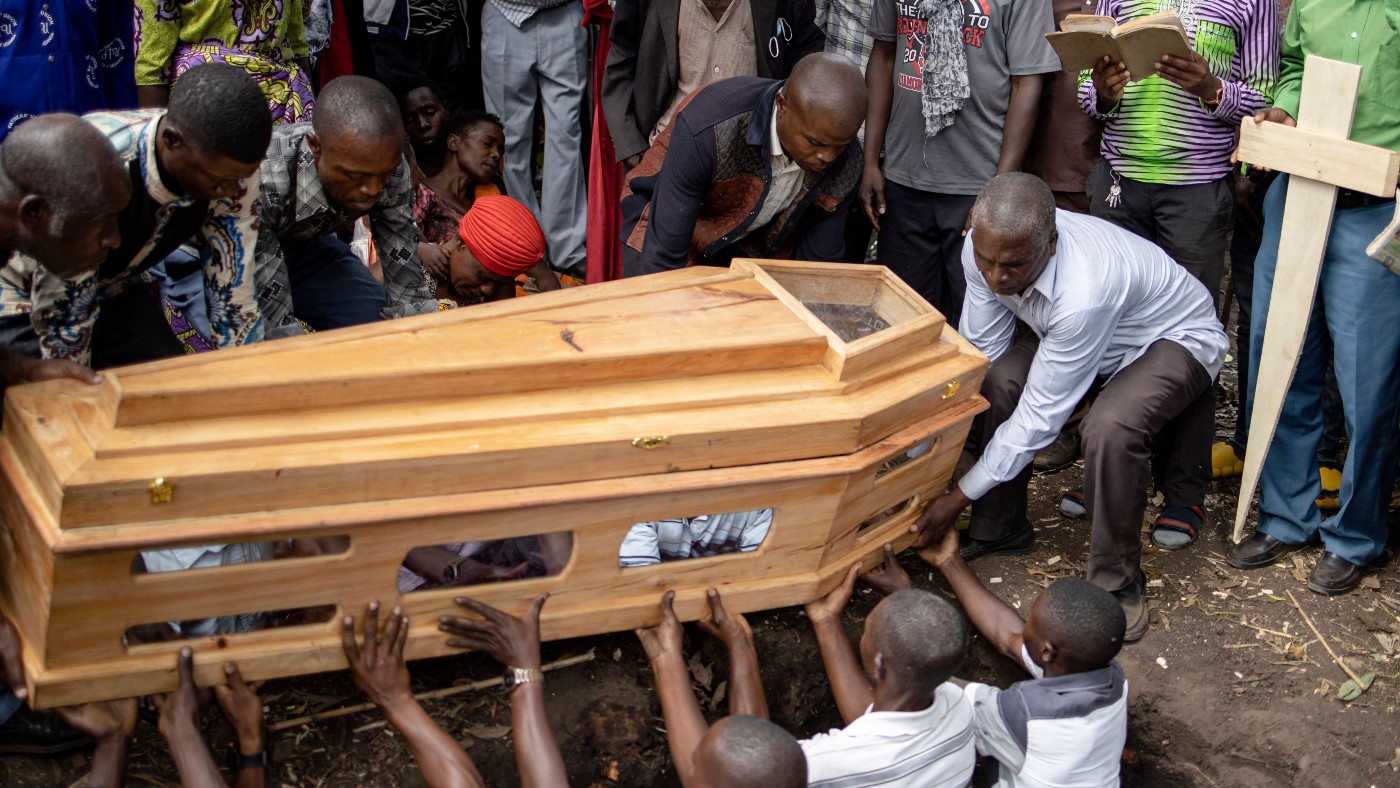How rural poverty is getting worse across the UK
Low pay, insecure employment and poor public transport exacerbating the cost-of-living crisis

A free daily email with the biggest news stories of the day – and the best features from TheWeek.com
You are now subscribed
Your newsletter sign-up was successful
Mark Shucksmith, professor of planning at Newcastle University, Jane Atterton, senior lecturer and manager of the Rural Policy Centre at Scotland's Rural College and Jayne Glass, researcher in geography at Uppsala University explain the reality of rural poverty in Britain, and how those in rural areas have more difficulty accessing state support through the welfare system.
In Britain, people imagine poverty as mainly an urban phenomenon. We think of poverty as rundown housing estates or tower blocks, far from the idyllic countryside scenes of shows like Escape to the Country.
But this is only part of the picture. Poverty in rural areas is more widespread than people might think. Fifty per cent of rural households experienced poverty at some point between 1991-2008 (54% in towns and cities). Surveys by the Financial Conduct Authority, an independent regulatory body, revealed that 54% of rural dwellers were financially vulnerable in 2018.
The Week
Escape your echo chamber. Get the facts behind the news, plus analysis from multiple perspectives.

Sign up for The Week's Free Newsletters
From our morning news briefing to a weekly Good News Newsletter, get the best of The Week delivered directly to your inbox.
From our morning news briefing to a weekly Good News Newsletter, get the best of The Week delivered directly to your inbox.
We have found that low pay, insecure employment, unaffordable housing and poor public transport infrastructure are all factors driving rural poverty. But the figures used to measure poverty (and determine where state support goes) are not always appropriate for rural contexts.
For example, the index of multiple deprivation, which governments use to identify areas where poverty is concentrated, can miss rural poverty, which is typically more dispersed. Such indices also use data on lack of car ownership to help measure an area’s poverty – but in a rural area, a car is essential even for poorer households.
Our new book Rural Poverty Today: Experiences of Social Exclusion in Rural Britain shows the reality of rural poverty in Britain, and how the current cost of living crisis is exacerbating it. And while families everywhere are suffering, those in rural areas have more difficulty accessing state support through the welfare system.
Rural cost of living
A 2021 report by Loughborough University found that for households in remote rural areas in Scotland, the minimum income standard is typically 15-30% higher than it is for urban households.
A free daily email with the biggest news stories of the day – and the best features from TheWeek.com
Rural living costs are higher largely because of fuel costs for heating and transport, and higher prices for food and other essentials. A 2020 study mapped “double energy vulnerability” – the combination of high fuel costs for transport and for heating – in Britain. The researchers found that rural households face the greatest financial pressure, as they pay a higher proportion of their income on these fuel costs. Rural homes tend to be older, larger, poorly insulated, difficult and costly to retrofit with insulation, and are often not on mains energy supplies.
In 2022, rural households had a higher fuel poverty rate (15.9%) and a larger fuel poverty gap (£956) than households in towns and cities. The fuel poverty rate was even higher (20.1%) for rural households off mains gas, who have to rely on expensive electricity or oil tanks instead.
Estimated fuel poverty rates for rural households in 2023 are higher still. Modelling by York University in early 2022 found that 57% of households in the Western Isles of Scotland (also called the Outer Hebrides) were experiencing fuel poverty, and they estimate that this has now risen to over 80%.
This has real human impacts. In our research, we found older people unable to put on the heating, people collecting firewood and only heating one room, and families unable to afford to refill their oil tanks (which have a minimum delivery of 500 litres) in midwinter. Urban households do not face this problem, as their houses are more commonly on mains energy.
The welfare state and rural poverty
Welfare – in the form of benefits and universal credit – should be a source of support for vulnerable households. But in our research, we’ve found that the welfare system is less able to support rural residents who may have unpredictable incomes, don’t have digital connectivity, or who do not have the skills to navigate a complex online system.
There is also a stigma attached to claiming benefits in small communities, where seeking welfare advice or claiming benefits is more visible and may lead to being perceived as lazy and not deserving of neighbours’ help.
Many of the challenges welfare claimants in rural areas face are similar to those in urban areas – the complexity and flawed design of the online system, payment delays and unpleasant experiences at assessment centres. But some issues are worse for rural claimants. We heard repeatedly of the inability of the benefits system (both legacy benefits and universal credit) to deal fairly with the volatility and irregularity of rural incomes from tourism, retail, or casual farm and estate work.
This can make household budgeting difficult, and in the most serious cases, increases the risk of debt and destitution. When benefits are overpaid, a frequent occurrence for people on irregular or volatile incomes who are unaware of the error, the overpayments are then deducted from subsequent months’ payments. This “clawback” can leave families with too little to live on.
Distanced from support
Many people are unable to access the very systems which should help them receive support, particularly if they live far from welfare offices. Rural claimants with a long-term physical or mental illness or disability will face strenuous, lengthy journeys to attend work capability assessments, a requirement to receive disability benefits.
In the Western Isles, where there is no assessment centre, residents can wait up to a year before an officer visits the islands, unless they can travel to Inverness or Skye. And as the benefits system moves mostly online, those who don’t have or can’t afford broadband access will struggle to get the help they need.
Reaching and supporting the most vulnerable in rural communities is likely to become even more difficult as the cost of living crisis continues. Meeting the challenge should be front of mind for political parties as they compete for the rural vote in the next election.
Mark Shucksmith, Professor of Planning, Newcastle University, Newcastle University; Jane Atterton, Senior Lecturer and Manager of the Rural Policy Centre, Scotland's Rural College, and Jayne Glass, Researcher in Geography, Uppsala University
This article is republished from The Conversation under a Creative Commons license. Read the original article.
-
 Switzerland could vote to cap its population
Switzerland could vote to cap its populationUnder the Radar Swiss People’s Party proposes referendum on radical anti-immigration measure to limit residents to 10 million
-
 Political cartoons for February 15
Political cartoons for February 15Cartoons Sunday's political cartoons include political ventriloquism, Europe in the middle, and more
-
 The broken water companies failing England and Wales
The broken water companies failing England and WalesExplainer With rising bills, deteriorating river health and a lack of investment, regulators face an uphill battle to stabilise the industry
-
 Dairy milk, once maligned, is making a comeback
Dairy milk, once maligned, is making a comebackUnder the Radar Sales of dairy milk were up 2% in 2024
-
 The dark side of salmon farming
The dark side of salmon farmingIn the Spotlight Scottish salmon is the UK's biggest global food export, but concern is growing over record-high death rates, escapes and environmental impact
-
 Bovaer: the new dairy additive prompting boycotts and conspiracy theories
Bovaer: the new dairy additive prompting boycotts and conspiracy theoriesIn The Spotlight Manufacturer says it wants to reduce methane emissions from cows but social media criticism has grown
-
 How toxins, heavy metals and possibly radioactive polonium are found in vapes
How toxins, heavy metals and possibly radioactive polonium are found in vapesfeature Vapers don’t know what they’re inhaling and cannot be certain of the health impacts
-
 How to immerse yourself in the Edinburgh Fringe 2023
How to immerse yourself in the Edinburgh Fringe 2023feature Given the scale of the festival navigating the array of shows on offer can be a challenge
-
 Why schoolchildren are regularly being targeted by terrorist groups in many countries
Why schoolchildren are regularly being targeted by terrorist groups in many countriesfeature Attacks on schools seen as a good way to bring attention to a cause by armed groups
-
 Is Eurovision finally cool?
Is Eurovision finally cool?feature Many British fans of Eurovision speak enthusiastically about its tolerance and openness
-
 BMW M3 Touring review: what the car critics say
BMW M3 Touring review: what the car critics sayfeature A sensational all-rounder, the car is ‘eye-wateringly, cheek-puffingly good to drive fast’